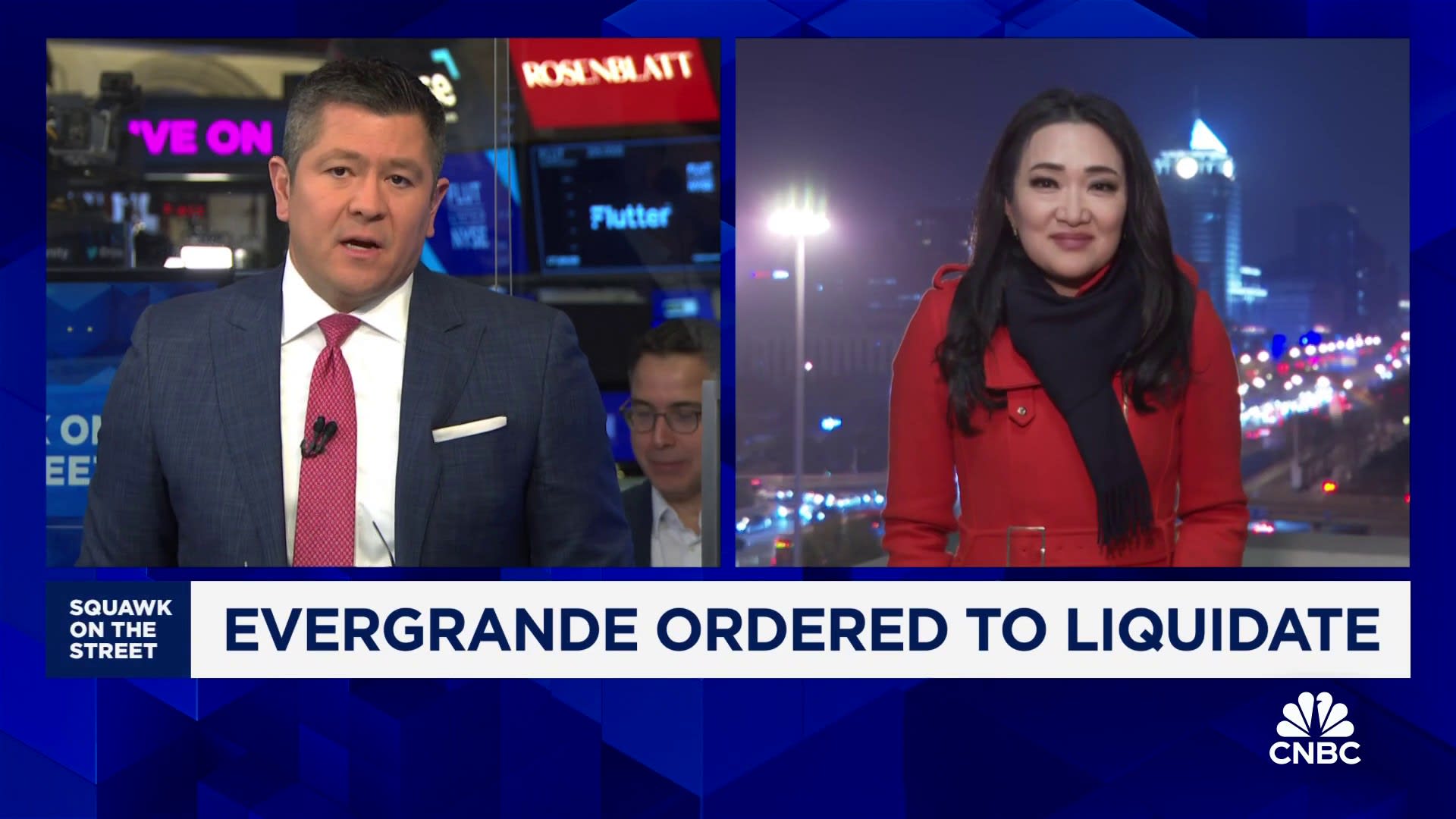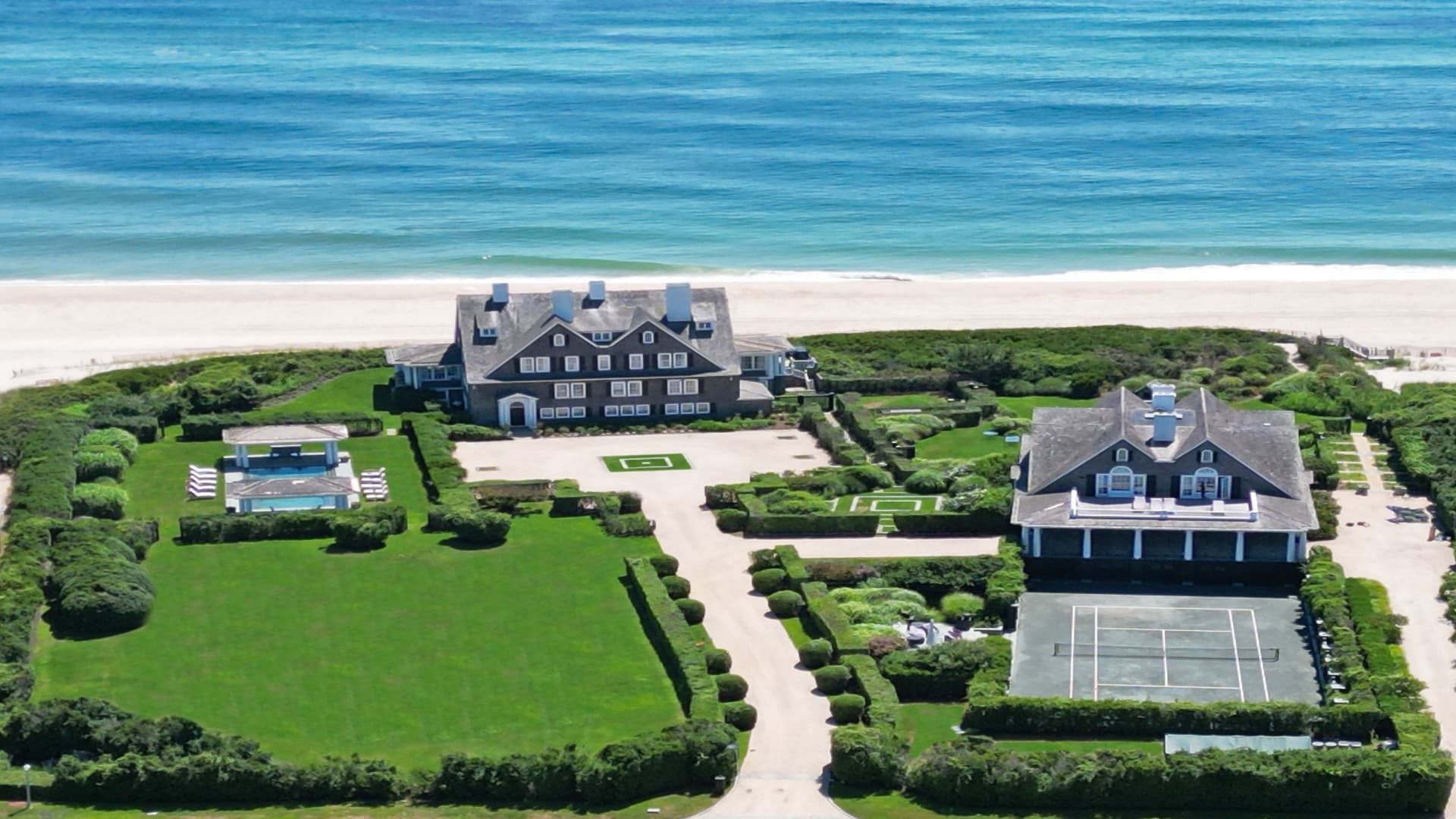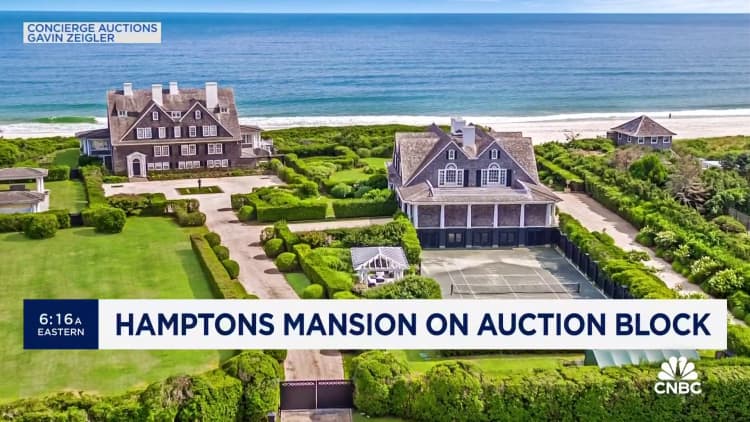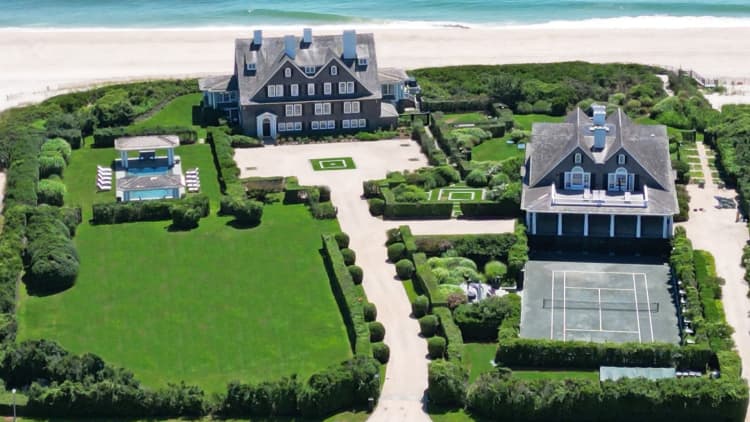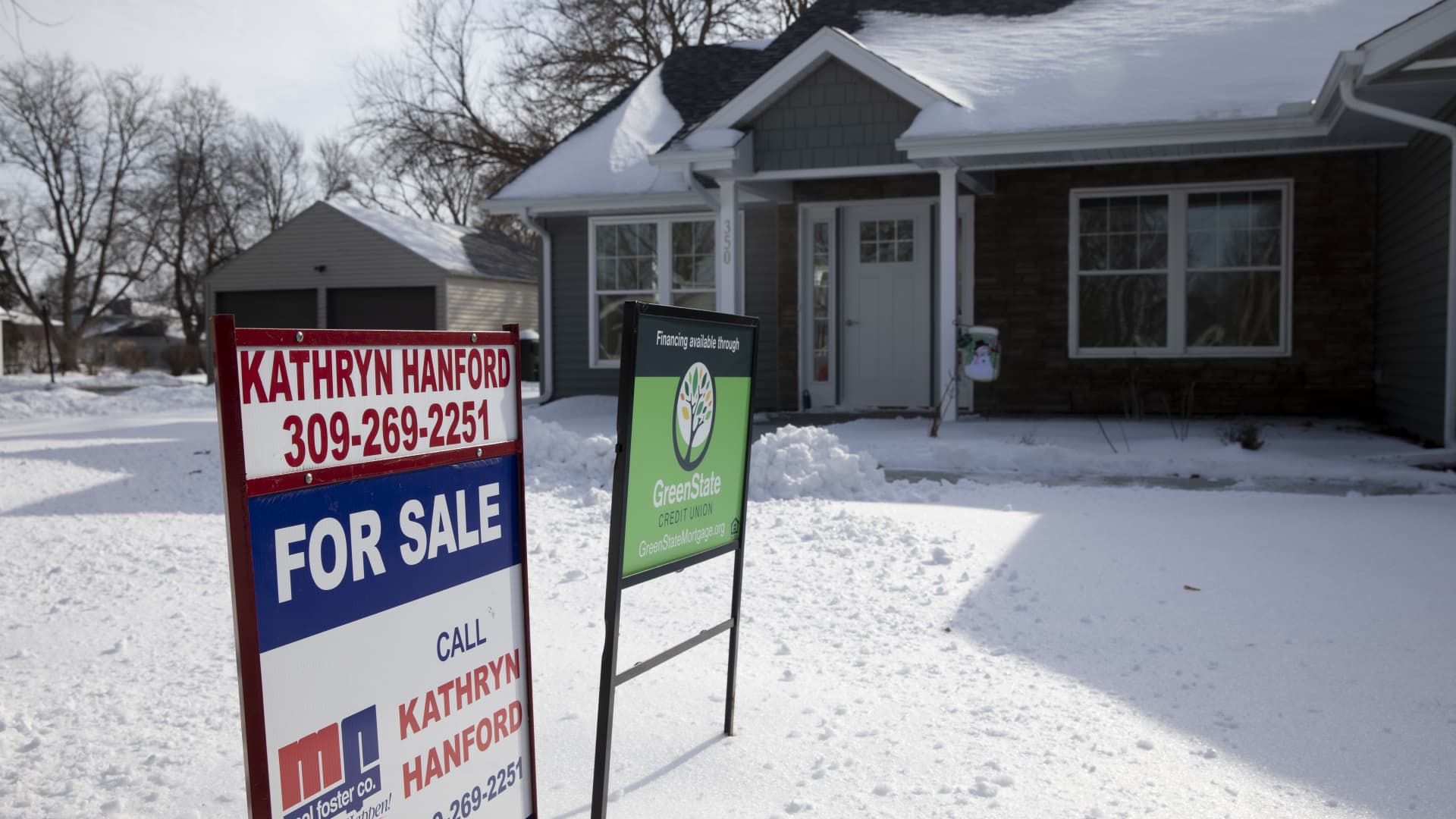Dave:
Hey, what’s up everyone? Welcome to On the Market. My name is Dave Meyer, your host. And today we’re going to be talking to one of the most well-respected and knowledgeable housing economist in the country. His name is Doug Duncan. He’s the senior vice president and chief economist at Fannie Mae. You’re probably aware Fannie Mae, one of the biggest government-backed entities that provides mortgages to the entire country. And so Doug and his team are really up on what’s going on with the housing market.
And today there are a couple things that I’m really excited to talk to him about. First and foremost, his team collects information and consumer sentiment, not just consumers, but home buyer sentiment. And so we’re going to talk about how people are feeling about the market, and not just how they’re feeling, but how their opinions of the market actually go on to influence behavior and actual results in the marketplace. And then, Doug has one of the most nuanced and most specific understandings and predictions about mortgage rates that you are likely to hear. So if you’re curious about where mortgage rates are heading this year and well beyond where you can expect mortgage rates to live over the next couple of years, you’re definitely going to want to stick around for this episode. So we are going to take a quick break and then we’ll bring on Doug Duncan from Fannie Mae.
Doug, thanks so much for joining us today.
Doug:
Happy to be here. Good to see you again.
Dave:
Likewise. Recently, Fannie Mae released an economic outlook and a national housing survey. So before we get into the outlook, I’m just curious a little bit about the sentiment. How are American consumers feeling about the housing market according to the data you’re collecting?
Doug:
Not very good. There’s been a little bit of an uptick recently in toward the positive direction as interest rates have started to come down a little bit, but in general, people don’t view it as a very good time to buy or frankly even to sell because affordability is really challenged. The pace at which prices rose in the 2020 to ’22 time period was very dramatic, much stronger than history would suggest. And then, even though interest rates were very low, which was one of the reasons for the price appreciation as people took advantage of those low interest rates, once interest rates rose, then the combination of high house prices and high interest rates really socked affordability significantly. It’s probably the worst it’s been for three decades or thereabouts, and people not very happy about that.
Dave:
Well, I appreciate your candor just saying not very good. That’s very blunt and appreciate it. How dramatic is it? Is it significantly worse than it’s been even after the ’08, ’09 era?
Doug:
Well, this is very different causes for the perspective. In the ’08, ’09 area, there was very weak or poor underwriting decisions made about credit qualifications and many loans made to people that really were realistically unable to sustain them. And as economic conditions changed, that proved out. There were huge levels of foreclosures. And so house price declines. Even with low interest rates during that time period did not lead to very happy consumers. And so we had to work through those foreclosures caused by that weak underwriting and the decline in the economy.
Today’s the basis for dissatisfaction is much more on the affordability side. Loan quality is very good. The number of delinquencies in the mortgage space are at very low levels, close to the lowest in history for Fannie Mae. And in part, that’s because in that 2020 to 2022 time period, a lot of people who already had mortgages refinanced them down to interest rates that are lifetime… It’ll be a once in a lifetime opportunity to lock in a 3% mortgage rate for a 30-year time period. So that side of things is very positive.
Our CEO called it a tail of two housing markets. If you’re in the market already and an owner, it was a great time to improve your position. You’ve seen that price decline, add equity to your household balance sheet. You’re in a really solid position. The problem is if you’re on the outside looking in trying to buy for the first time, high home prices and high interest rates are a toxic mix for you. In our sentiment survey, you do see a difference between current owners and those who are renters, and the owners are in a better position than the renters are.
Dave:
That makes sense. And what does this mean to you? Obviously, it’s interesting to see sentiment, but does it tell you anything about the housing market in the near future?
Doug:
Well, it says it’s going to be a gradual improvement, a slog, if you will, to get better. Our forecast is for home sales in 2024 to be around 4% higher than in 2023, but 2023 was a very low year historically. So it’s an improvement, but it’s certainly no gangbusters’ improvement. House prices are still, in our view, going to appreciate just because there’s such a lack of supply in the market and there’s still strong demand out there. Every increment that interest rates come down is going to put some pressure on activating that demand against that low level of supply and create upside risks in the house price area. And it’s really on the back of the builders to improve supply. But that’s going to take time.
Dave:
I guess one of the questions I’m continuously wondering and have been asking people is, as you said, lower rates and every time they tick down increases demand. But is there any chance that it will also increase supply because it improves those buying conditions for people who might now be willing to sell to buy into a slightly more favorable buying market?
Doug:
Well, at the margin, that’s possible. And if you look into the sentiment survey, you can see among the people who currently own a home, that their sentiment suggests it’s not a great time to sell a house because the combination of higher prices and interest rates reduces the group of people who could afford to buy that house. And so they don’t want to sell into a falling price market. So there’s a little bit of a give and take there with the improvement in affordability, and it really all comes back to revolve around supply.
So in order to make things return to more historically common relationship, you got to see one or a combination of up to three things change. One is there has to be some increase in supply. Some people are looking to that to the late life boomers releasing supply back into the market as one possibility. Obviously, the builders’ acceleration among the builders and adding supply to the market. The second thing is a rise in real household incomes. That’s important. If we see growing real household incomes, that helps. And a third thing is reduction in interest rates. So some combination of those three things is going to be required to return affordability to longer term, more average levels. And we don’t see that happening in 2024.
We see the Fed cutting rates four times in 2024. That’s what gets us to that 5.8% mortgage rate, which we think may occur in the fourth quarter of this year. So gradual improvement. We’ll see whether the bond market bears that out in 2025. We actually have another four rate cuts in our forecast, and so we see mortgage rates coming down into the mid-fives range.
When we are asked to think about what should people think of as a go forward mortgage rate, I take a look back at the history of the 30-year pick street mortgage. And from the post-World War II time period after the VA was in operation and employment stabilized shifting from the war footing of the economy, the average 30-year fixed rate mortgage from that time period up to the year 2000 is about 6%. During that time, the economy grew at about 3% annual even including recessions.
So if you think about that relationship and then think about the CBO today projects the potential growth of GDP going forward at about one and three quarters percent annually, and think about what would mortgage rates relative to that look like. What I tell mortgage lenders is I would be doing my planning on a interest rate path across the housing cycle of between four and a half and 6%, four and a half when we come out of recession. And so things are getting started again, the Fed has eased, rates have come down. Then across the expansion, you see rates gradually move up as incomes move up. And prior to Fed tightening on the other end of that expansion, mortgage rates probably hit around 6%. So the middle of that, it’s about five and a quarter percent mortgage.
It might be a little lower, depending on what you think about all of the treasury issuance that has to be done to fund the debt in the United States because that number is going to be bigger this year than last year and even bigger next year. So that underlying treasury issuance may put some up upper pressure on rates that would suggest it wouldn’t go as low as it might given the lower level of economic growth under which the housing market operated.
Dave:
Okay. But it sounds like given what you’re saying about the range, and if the Fed you believe long-term tightens around six, gets back down to four and a half, does that mean you think the reason it’s going to take a few years to get back down to maybe low fives is because we’re going to be in a extended period of slow economic growth or perhaps even a recession?
Doug:
Well, we flipped our forecast in December. We still had a mild recession in the first half of 2024, but we’re just not seeing the weight of change resulting in that at this point in time. We’re still monitoring a series of things that are highly correlated with recession that are still indicating recession. But one of the reasons we felt the recession would be mild was because of the supply demand imbalance within housing. That certainly has played out to be true. That part of the forecast we absolutely got right. But housing now starting to improve would suggest it may actually keep us from going into recession and lead the way to, if not strong growth, at least slow growth. And our forecast does reflect slow growth over the next couple of years. So that slow growth suggests that the Fed will continue to bring rates down and move mortgage rates back to that low to mid-fives range.
Dave:
I want to get back to something you said earlier, Doug, about supply and where it comes from. And it sounds like you’re of the belief that I think is shared by a lot of experts in the housing market that affordability long-term does need to return to more historical averages, but it doesn’t need to happen quickly, and it could happen over the next few years as the combination of variables, you said, take effect. You said basically real wage growth that for our listeners means inflation adjusted wage growth, perhaps more building, lowering interest rates. Is that how you see the housing market operating over the next few years?
Doug:
Yeah, we don’t see the supply problem going away immediately. That’s a longer term challenge, and there’s been a lot of analysts that have run their forecast ship on the ground expecting some sort of a catastrophic decline in house prices because of a demographic shift. We don’t see that.
Most recently, there was an article written about who’s going to buy all these big suburban homes now that the boomers are empty nesters. Well, the shift toward work from home suggests even if you have a smaller family, now you need at least one office and maybe two if you’re a two income household. And so that’s going to absorb some of those extra bedrooms that were considered to be the risk. And so once again, the shift in economics and demographics has suggested there’s not waiting out there some catastrophic decline in house prices. And in fact, gen X population group, depending on the years that you calculate, is actually larger than the boomers, and they’re still a pretty significant group at the tail end of that age group. And the uncertainty is we don’t know how much immigration is going to backfill behind that. So predicting some sort of a dramatic drop-off in house price has been a fraught area to be in, and we’re not in that area.
Dave:
Yeah. Yeah. I’m with you there. The last question, Doug, before we let you go is you mentioned something about construction and that it would take a really long time. This is a question we get a lot here on the show. What would it take for construction to bail us out of the supply problem?
Doug:
Well, you’d have to see a continued acceleration of acquiring resources by builders in order to push that forward. People talk about the three Ls or the five Ls. Land, labor and lumber being the three Ls, and they’re still in the builder community surveys. You will still see that one of the constraints that they recognize is the lack of skilled labor. It’s not basic labor carrying bags of cement or blocks or whatever, but it’s people who are really good at drywall and finishing products and things like… Some of that takes time to build. And if everyone’s trying to expand, it’s reasonable that you would see in their surveys that is a problem for them. If everybody’s trying to hire skilled labor at the same time, there’s going to be, in the surveys, a reflection of that as a challenge for them.
You would say, okay, we’ll just raise their wage rates and you’ll get more. Okay. They still need to make a profit. If you raise the cost of labor, then the question is, what happens to the cost of materials? Well, the cost of material has been going up as well. Okay, well, then what happens with the cost of land? Well, the cost of land has been going up as well. So it’s a gradual process and they expand according to the pace at which real incomes will allow households who would like to buy a new home to be able to purchase it. So there’s a simultaneous change of economic factors that needs to take place, and that will be gradual, not sudden.
Dave:
That’s a very good explanation. Thank you. I think we were all hoping it will happen, but obviously there’s some barriers to that just picking up overnight.
Doug:
Yeah, that’s right.
Dave:
Well, Doug, thank you so much for joining us. We really appreciate your time.
Doug:
You bet. Good to be with you.
Dave:
Another big thanks to Doug for joining us today. I hope you all enjoyed it. I think Doug is one of the most knowledgeable guys out there and really shared some really helpful information. For me, I find the range that he provided about mortgage rates to be one of the more useful tidbits and stats that I’ve heard in a long time because, frankly, people guess where rates are going to be in the end of 2024. But for me as an investor, it is more important to me what the range is going to be going forward because that actually allows me to make more long-term decisions. Like, do I want to do a rate buydown? How much debt do I want to put on? Should I refinance this year? Rates are going to be lower. And I generally think that his analysis of the range of rates is good.
It sounds like we need another year to at least get into that range of six to 4.5%. And I agree with Doug. I personally don’t see it going. I think it will probably stay in the sixes for most of ’24, maybe dip into the fives. But I do think we have a ways to go with mortgage rates. But it’s helpful still to just understand that not likely to get down into 3% again, probably not even into the low fours anytime soon, maybe not even in our lifetimes. And so that will hopefully get people selling when they realize this. And as an investor, that hopefully helps you make decisions about what you’re going to purchase, when you’re going to purchase and your financing strategy.
So hope you learn something. I appreciate you all for listening. If you did learn something and you liked it, share it with a friend or leave us a five star review on whatever platform you’re listening on. Thanks again. We’ll see you next time.
On The Market was created by me, Dave Meyer, and Kailyn Bennett. The show is produced by Kailyn Bennett, with editing by Exodus Media. Copywriting is by Calico Content, and we want to extend a big thank you to everyone at BiggerPockets for making this show possible.
Help us reach new listeners on iTunes by leaving us a rating and review! It takes just 30 seconds and instructions can be found here. Thanks! We really appreciate it!




